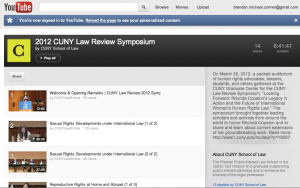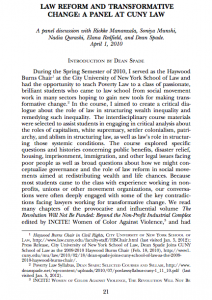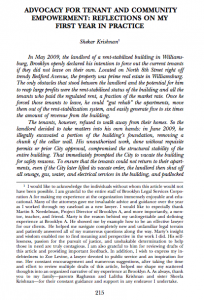The City University of New York Law Review is a specialty journal devoted to publishing social-justice scholarship, engaging the public-interest bar, and fostering student excellence in writing, legal analysis, and research. The journal is published by students at the CUNY School of Law, the only law school in the New York metropolitan area whose chief mission is to train public-interest lawyers and champion diversity in the legal profession.
The journal is seeking submissions from scholars, practitioners, and students for its Winter 2014 issue, which will continue the journal’s tradition of advancing legal scholarship highlighting the touchstones of our publication’s work—including civil rights, progressive legal reform, the impact of the law on minorities and marginalized communities, international human rights, and attorneys’ insights on how recent developments in the law have affected their public-interest practices.
One-page proposals and finished manuscripts for consideration by our editorial board should be submitted to cunylr@law.cuny.edu. All offers to publish and final decisions are expected to be finalized by Aug. 5, 2013.
In addition, the journal is seeking shorter, more time-sensitive contributions—such as comments on recent federal or state case law, critiques of legislative proposals, and legally relevant analyses of current events—for inclusion in our evolving digital platform at the City University of New York Law Review website at www.cunylawreview.org. Submissions for digital consideration should be sent directly to the Digital Articles Editor, at ldavis@mail.law.cuny.edu.
Recent editions of the journal have included symposia volumes on U.S. Supreme Court Justice Ruth Bader Ginsburg and pioneering human-rights attorney Rhonda Copelon, a special edition on elder law featuring winning articles from the American Bar Association Law and Aging Student Competition, and a commemorative issue highlighting scholarship by CUNY Law faculty and students on the occasion of the school’s 30th anniversary.

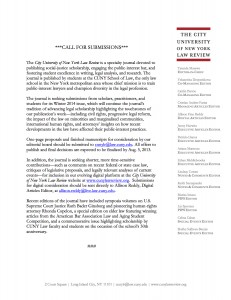
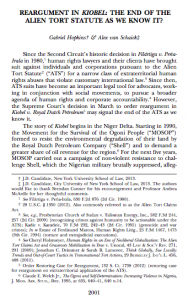
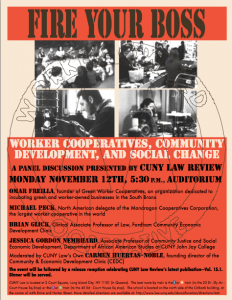
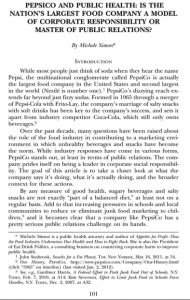
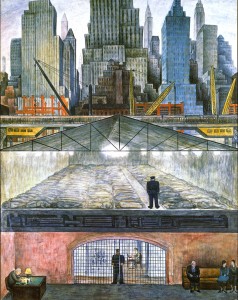
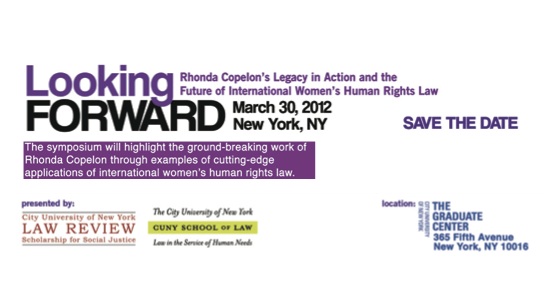 On March 30, 2012, a packed auditorium of human rights advocates, lawyers, students, and others gathered at the CUNY Graduate Center for the CUNY Law Review Symposium, “Looking Forward: Rhonda Copelon’s Legacy in Action and the Future of International Women’s Human Rights Law.” The symposium brought together leading scholars and activists from around the world to honor Rhonda Copelon and to share and learn about current extensions of her groundbreaking work.
On March 30, 2012, a packed auditorium of human rights advocates, lawyers, students, and others gathered at the CUNY Graduate Center for the CUNY Law Review Symposium, “Looking Forward: Rhonda Copelon’s Legacy in Action and the Future of International Women’s Human Rights Law.” The symposium brought together leading scholars and activists from around the world to honor Rhonda Copelon and to share and learn about current extensions of her groundbreaking work.